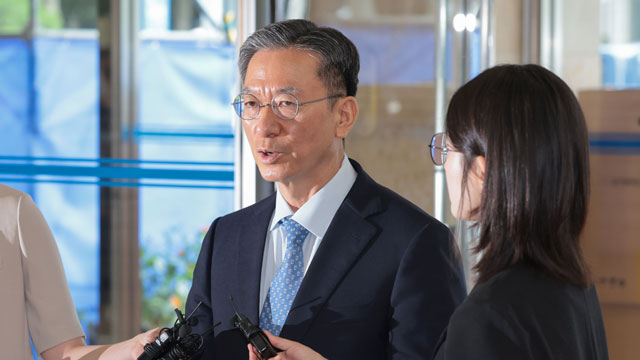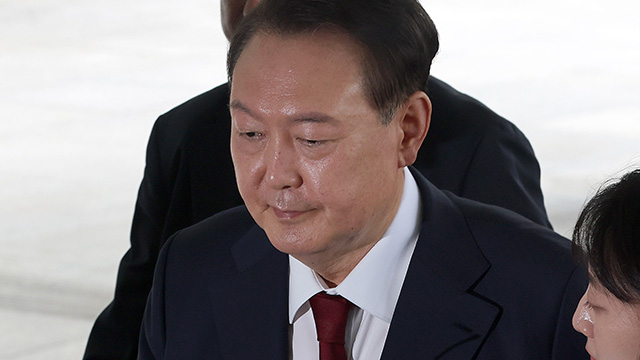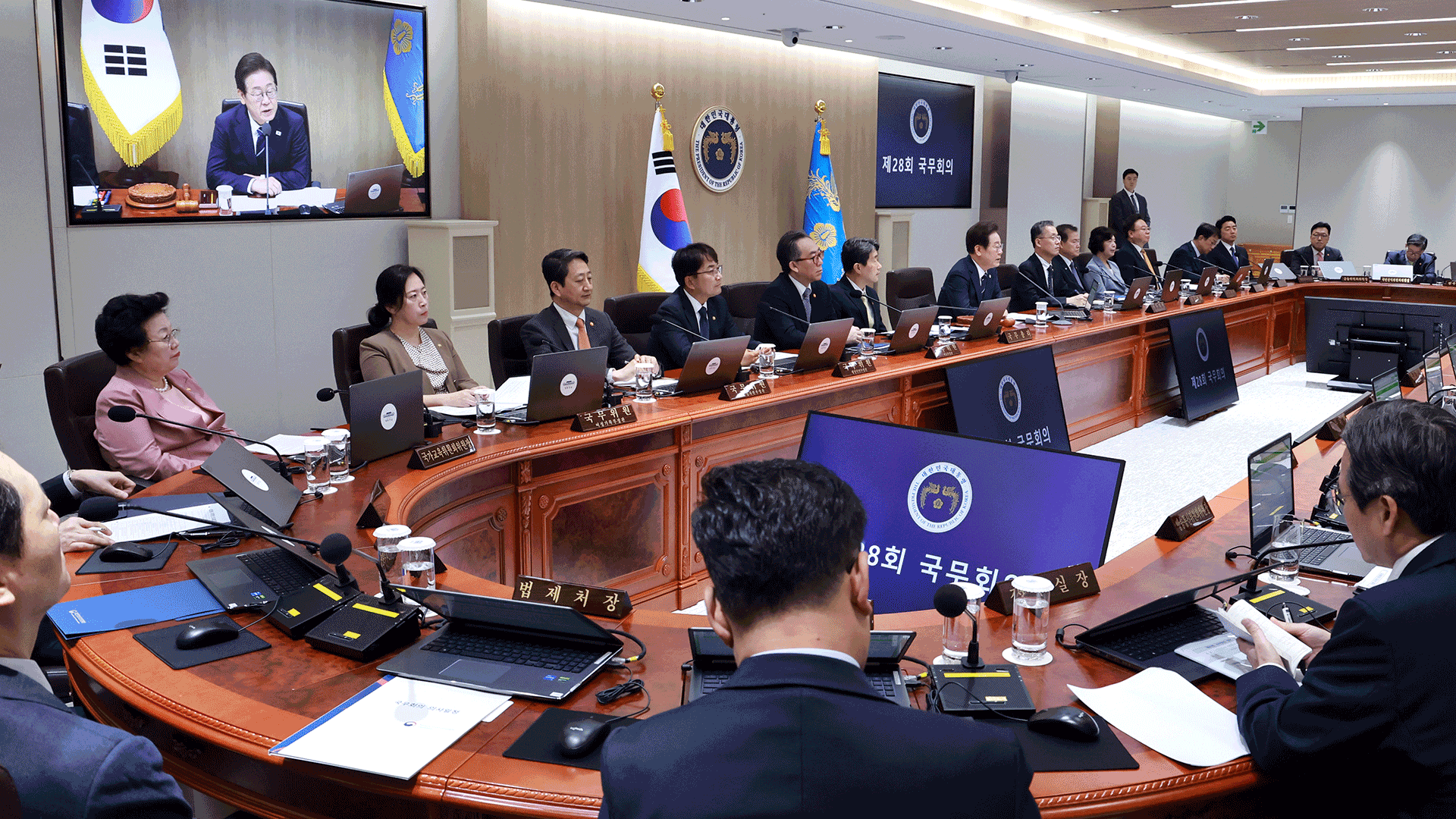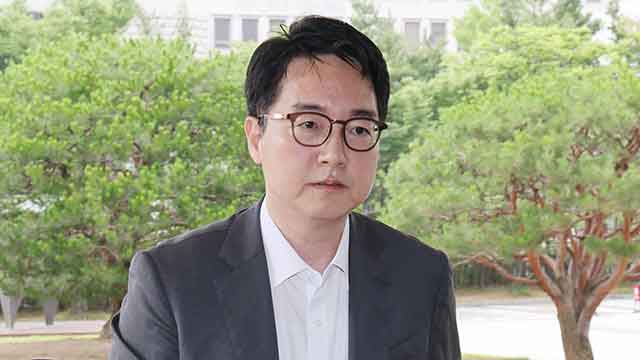Psychological support needed for victims' families to address trauma
입력 2024.12.31 (00:59)
읽어주기 기능은 크롬기반의
브라우저에서만 사용하실 수 있습니다.
[Anchor]
Many people are in great shock and mourning due to this incident.
The mental shock caused by a sudden accident can last for a long time, and therefore, psychological support for the bereaved families must be provided quickly.
We have medical specialist Lee Chung-heon, a psychiatrist, with us.
So, reporter Lee, I have this thought.
If I feel this way, I can hardly imagine the level of shock the bereaved families must be experiencing.
[Reporter]
Yes, nine family members who were on their way to celebrate an 80th birthday have tragically lost their lives.
Heartbreaking stories are coming in, and the shock experienced by the bereaved families is beyond words.
The scene of the accident may repeatedly come to mind, and at times, they may blame themselves due to feelings of guilt about the accident.
While feelings of injustice and anger may be expressed, the problem is that over time, they may fall into deep feelings of loss and helplessness.
[Anchor]
So, how should we provide psychological support to the bereaved families?
[Reporter]
Right now, what is needed most is 'psychological first aid.'
The key is to help them feel that they are not alone.
We should allow them to talk as much as they want, but hasty consolation and judgment should be avoided.
Especially if symptoms of anxiety or depression arise, they should seek help from a specialist and get prescriptions for anti-anxiety medication or antidepressants.
[Anchor]
Those who witnessed the accident and the rescue workers involved must also be experiencing significant shock.
[Reporter]
They may experience 'acute stress disorder' due to psychological shock.
If left untreated, this can lead to 'post-traumatic stress disorder, PTSD.'
Even after time passes, the horrific scenes of the accident may continue to resurface, and nightmares may follow.
They may experience severe anxiety, intense emotional reactions, decreased concentration, and even insomnia.
Ordinary people who repeatedly encounter such large-scale incidents through the media or social media may also suffer from trauma, so caution is needed.
[Anchor]
So, what should be done to prevent the post-traumatic stress disorder mentioned earlier?
[Reporter]
If symptoms persist for more than four weeks, professional help is needed.
Psychological counseling along with 'EMDR, Eye Movement Desensitization and Reprocessing therapy' can be helpful.
This method involves quickly moving the eyes from side to side while recalling traumatic memories, effectively untangling the trauma memories that are strongly intertwined with negative emotions to alleviate pain.
It is also important for ordinary people who have encountered large-scale disasters to try to accept their emotions naturally without suppressing them.
[Anchor]
I see. Thank you, reporter Lee Chung-heon.
Many people are in great shock and mourning due to this incident.
The mental shock caused by a sudden accident can last for a long time, and therefore, psychological support for the bereaved families must be provided quickly.
We have medical specialist Lee Chung-heon, a psychiatrist, with us.
So, reporter Lee, I have this thought.
If I feel this way, I can hardly imagine the level of shock the bereaved families must be experiencing.
[Reporter]
Yes, nine family members who were on their way to celebrate an 80th birthday have tragically lost their lives.
Heartbreaking stories are coming in, and the shock experienced by the bereaved families is beyond words.
The scene of the accident may repeatedly come to mind, and at times, they may blame themselves due to feelings of guilt about the accident.
While feelings of injustice and anger may be expressed, the problem is that over time, they may fall into deep feelings of loss and helplessness.
[Anchor]
So, how should we provide psychological support to the bereaved families?
[Reporter]
Right now, what is needed most is 'psychological first aid.'
The key is to help them feel that they are not alone.
We should allow them to talk as much as they want, but hasty consolation and judgment should be avoided.
Especially if symptoms of anxiety or depression arise, they should seek help from a specialist and get prescriptions for anti-anxiety medication or antidepressants.
[Anchor]
Those who witnessed the accident and the rescue workers involved must also be experiencing significant shock.
[Reporter]
They may experience 'acute stress disorder' due to psychological shock.
If left untreated, this can lead to 'post-traumatic stress disorder, PTSD.'
Even after time passes, the horrific scenes of the accident may continue to resurface, and nightmares may follow.
They may experience severe anxiety, intense emotional reactions, decreased concentration, and even insomnia.
Ordinary people who repeatedly encounter such large-scale incidents through the media or social media may also suffer from trauma, so caution is needed.
[Anchor]
So, what should be done to prevent the post-traumatic stress disorder mentioned earlier?
[Reporter]
If symptoms persist for more than four weeks, professional help is needed.
Psychological counseling along with 'EMDR, Eye Movement Desensitization and Reprocessing therapy' can be helpful.
This method involves quickly moving the eyes from side to side while recalling traumatic memories, effectively untangling the trauma memories that are strongly intertwined with negative emotions to alleviate pain.
It is also important for ordinary people who have encountered large-scale disasters to try to accept their emotions naturally without suppressing them.
[Anchor]
I see. Thank you, reporter Lee Chung-heon.
■ 제보하기
▷ 카카오톡 : 'KBS제보' 검색, 채널 추가
▷ 전화 : 02-781-1234, 4444
▷ 이메일 : kbs1234@kbs.co.kr
▷ 유튜브, 네이버, 카카오에서도 KBS뉴스를 구독해주세요!
- Psychological support needed for victims' families to address trauma
-
- 입력 2024-12-31 00:59:21

[Anchor]
Many people are in great shock and mourning due to this incident.
The mental shock caused by a sudden accident can last for a long time, and therefore, psychological support for the bereaved families must be provided quickly.
We have medical specialist Lee Chung-heon, a psychiatrist, with us.
So, reporter Lee, I have this thought.
If I feel this way, I can hardly imagine the level of shock the bereaved families must be experiencing.
[Reporter]
Yes, nine family members who were on their way to celebrate an 80th birthday have tragically lost their lives.
Heartbreaking stories are coming in, and the shock experienced by the bereaved families is beyond words.
The scene of the accident may repeatedly come to mind, and at times, they may blame themselves due to feelings of guilt about the accident.
While feelings of injustice and anger may be expressed, the problem is that over time, they may fall into deep feelings of loss and helplessness.
[Anchor]
So, how should we provide psychological support to the bereaved families?
[Reporter]
Right now, what is needed most is 'psychological first aid.'
The key is to help them feel that they are not alone.
We should allow them to talk as much as they want, but hasty consolation and judgment should be avoided.
Especially if symptoms of anxiety or depression arise, they should seek help from a specialist and get prescriptions for anti-anxiety medication or antidepressants.
[Anchor]
Those who witnessed the accident and the rescue workers involved must also be experiencing significant shock.
[Reporter]
They may experience 'acute stress disorder' due to psychological shock.
If left untreated, this can lead to 'post-traumatic stress disorder, PTSD.'
Even after time passes, the horrific scenes of the accident may continue to resurface, and nightmares may follow.
They may experience severe anxiety, intense emotional reactions, decreased concentration, and even insomnia.
Ordinary people who repeatedly encounter such large-scale incidents through the media or social media may also suffer from trauma, so caution is needed.
[Anchor]
So, what should be done to prevent the post-traumatic stress disorder mentioned earlier?
[Reporter]
If symptoms persist for more than four weeks, professional help is needed.
Psychological counseling along with 'EMDR, Eye Movement Desensitization and Reprocessing therapy' can be helpful.
This method involves quickly moving the eyes from side to side while recalling traumatic memories, effectively untangling the trauma memories that are strongly intertwined with negative emotions to alleviate pain.
It is also important for ordinary people who have encountered large-scale disasters to try to accept their emotions naturally without suppressing them.
[Anchor]
I see. Thank you, reporter Lee Chung-heon.
Many people are in great shock and mourning due to this incident.
The mental shock caused by a sudden accident can last for a long time, and therefore, psychological support for the bereaved families must be provided quickly.
We have medical specialist Lee Chung-heon, a psychiatrist, with us.
So, reporter Lee, I have this thought.
If I feel this way, I can hardly imagine the level of shock the bereaved families must be experiencing.
[Reporter]
Yes, nine family members who were on their way to celebrate an 80th birthday have tragically lost their lives.
Heartbreaking stories are coming in, and the shock experienced by the bereaved families is beyond words.
The scene of the accident may repeatedly come to mind, and at times, they may blame themselves due to feelings of guilt about the accident.
While feelings of injustice and anger may be expressed, the problem is that over time, they may fall into deep feelings of loss and helplessness.
[Anchor]
So, how should we provide psychological support to the bereaved families?
[Reporter]
Right now, what is needed most is 'psychological first aid.'
The key is to help them feel that they are not alone.
We should allow them to talk as much as they want, but hasty consolation and judgment should be avoided.
Especially if symptoms of anxiety or depression arise, they should seek help from a specialist and get prescriptions for anti-anxiety medication or antidepressants.
[Anchor]
Those who witnessed the accident and the rescue workers involved must also be experiencing significant shock.
[Reporter]
They may experience 'acute stress disorder' due to psychological shock.
If left untreated, this can lead to 'post-traumatic stress disorder, PTSD.'
Even after time passes, the horrific scenes of the accident may continue to resurface, and nightmares may follow.
They may experience severe anxiety, intense emotional reactions, decreased concentration, and even insomnia.
Ordinary people who repeatedly encounter such large-scale incidents through the media or social media may also suffer from trauma, so caution is needed.
[Anchor]
So, what should be done to prevent the post-traumatic stress disorder mentioned earlier?
[Reporter]
If symptoms persist for more than four weeks, professional help is needed.
Psychological counseling along with 'EMDR, Eye Movement Desensitization and Reprocessing therapy' can be helpful.
This method involves quickly moving the eyes from side to side while recalling traumatic memories, effectively untangling the trauma memories that are strongly intertwined with negative emotions to alleviate pain.
It is also important for ordinary people who have encountered large-scale disasters to try to accept their emotions naturally without suppressing them.
[Anchor]
I see. Thank you, reporter Lee Chung-heon.
-
-

이충헌 기자 chleemd@kbs.co.kr
이충헌 기자의 기사 모음
-
이 기사가 좋으셨다면
-
좋아요
0
-
응원해요
0
-
후속 원해요
0















이 기사에 대한 의견을 남겨주세요.